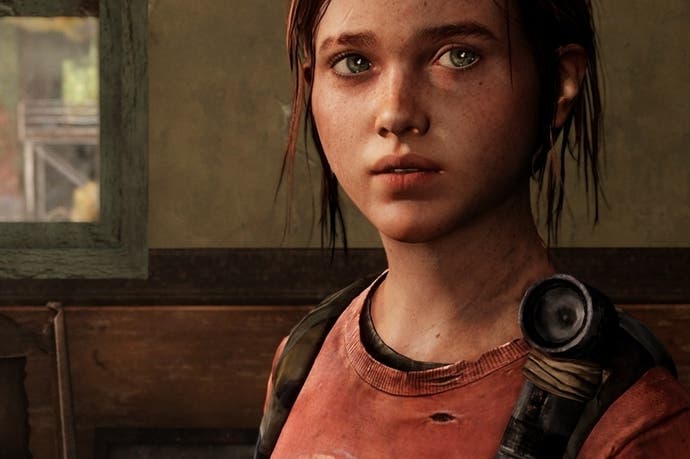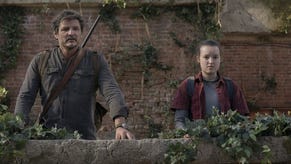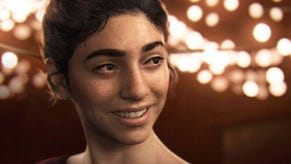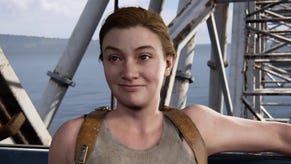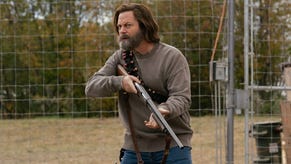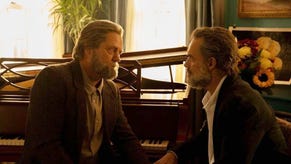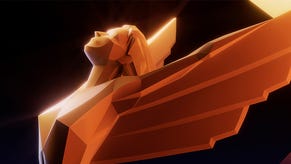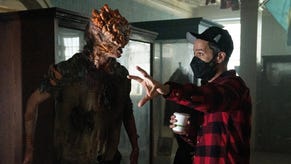The Last of Us isn't the solution to sexism in games, but it's a start
Ellie Gibson's take on that New York Times review.
Spoiler alert: This article refers to some plot points in The Last of Us, including the game's ending.
Women, eh? You can't live with 'em, you can't stick 'em in a video game without being criticised for dressing them in a metal thong, giving them skills called "Feminist Whore" or marketing the return of gaming's biggest female icon as one giant rape fantasy. What a crazy world we live in!
At least things have improved since the days of Custer's Revenge. Over the last 20 years, the number of video games starring women protagonists has risen to almost four. Forget Princess Peach and Ms. Pac-Man; today's young female gamers have much stronger role models, such as the girl out of Half-Life 2 with the tiny vest, her from Beyond Good & Evil with the tiny vest, and that Mirror's Edge woman with the eye make-up and the tiny vest.
As the representation of women in games has changed, so has their treatment within the industry. I speak from personal experience. It's been years since the last time someone came up to me at an industry party and said, "Are you Leigh Alexander?" ("No, I'm the other one.") At trade shows, I am rarely mistaken for a PR representative or Asda entertainment buyer more than 18 times a day. I recently visited a games development studio that had a dedicated "ladies" toilet. And get this: the hand dryer worked.
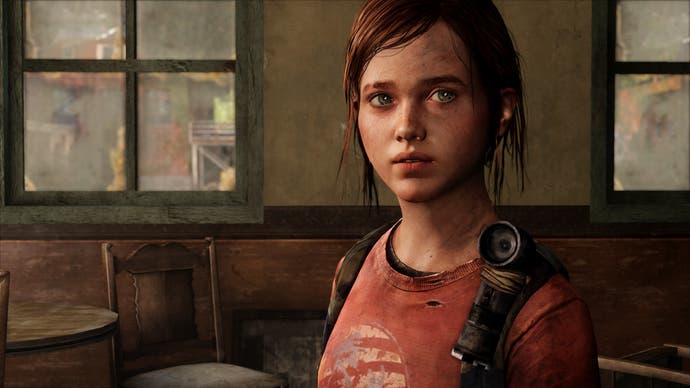
But for evidence of real progress, take a look at The Last of Us, the PlayStation 3 exclusive released last month. As you'll know if you've played the game or read the reviews (Oli's can be found here on Eurogamer, mine is over on Gameological), it's a survival horror effort that follows the adventures of a man called Joel and a girl called Ellie. Thrown together by forces beyond their control, namely a fungal infection not even Canesten Duo is a match for, they embark on an epic journey across a post-apocalyptic America.
Along the way they encounter the usual collection of murderous bandits and zombies with heads like the vegetables they used to have on That's Life. More to the point, they encounter women. The kind of capable, believable women who see the practical advantages of a nice warm fleece over a chainmail bikini, and who do a nice line in shivs crafted out of Venus Breeze cartridges. (Top tip: for maximum damage, remove the moisturising aloe vera strip.)
Leading the charge is Ellie. Smart, brave, sweary Ellie, who is sometimes strong, sometimes vulnerable, but never a cliché. The game sets her up as a damsel in distress but then subverts the whole concept. Ellie is perfectly capable of saving herself - not to mention Joel, some other dudes they bump into, and the entire human race. Here we have a female character who is neither a helpless hostage nor a space marine with tits. This is as rare in video games as tedious bolt-on multiplayer modes are common.
But Ellie is not the protagonist. That honour still goes to a man, as critic Chris Suellentrop pointed out in his recent New York Times review. He argued that because the player only controls Ellie for a small portion of the game, "The Last of Us casts her in a secondary, subordinate role... It is actually the story of Joel, the older man. This is another video game by men, for men and about men."
It's true that Ellie's role in the game is secondary, but I don't think it's subordinate. She argues with Joel. She has the power to challenge his decisions and change his mind. At numerous points in the game, she is the one in charge. She is the protector. At the end, it's Joel who is revealed to be the weaker character. He needs Ellie more than she needs him. Because of this, he makes a selfish decision that will have catastrophic consequences. Then lies to her about it. What a wanker.
OK, he's not really a wanker. He's a complex, troubled man who has been profoundly damaged by grief. He has already lost one daughter, Sarah, and more recently his girlfriend, Tess. Suellentrop argued these two are "women in the refrigerator" - characters who exist solely to provide the male protagonist with the motivation for murder.
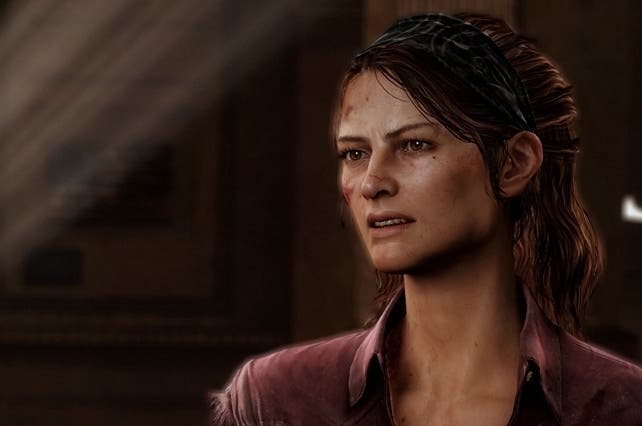
It's true they fall into the traditional categories of Women Who Are Allowed to be in Video Games, of which there are precisely two: Defenceless Kitten and Gruff Badass Who Has No Time for Emotions or Lipstick. But I don't think these women are killed off to justify Joel's rage. I think they are killed off to explain his grief, which in turn explains his treatment of Ellie and the decision he finally makes.
More importantly, Tess and Sarah provide a backdrop against which Ellie can shine. They are a reminder of the fallacy the game goes on to explode. These are not the only two types of women that exist; they're the extreme ends of a spectrum. Ellie stands in the middle, brave enough to show fear, powerful enough to ask for what she needs. She is not a princess or a warrior queen, just a normal girl trying to cope with life in a broken world.
That is something I can identify with, as someone who lived through the Catford riots. But also as someone who has fought to be defined by what I do rather than what I am. I don't want to play games featuring women I'm expected to feel sorry for or aspire to be. I want to play games featuring women I can relate to, because they are complex and flawed and believable, and don't live on a paradise island where there is nothing to do but waggle your poorly pixellated perineum at the camera.
There is a problem with sexism in games and The Last of Us does not solve it. But that's an impossible task for a single game, and I'm not sure casting Ellie as the main character would have made much difference. This is never just Joel's story. The fact he gets more hours of playtime should not detract from Naughty Dog's efforts to represent women in a realistic, intelligent way.
I don't think this is a game about men; it's about why humans need each other. I don't know if it's by men, but I'd wager upwards of ten pounds the Naughty Dog ladies' toilet has a working hand dryer. I don't believe it was made for men, because it would have been a much safer bet to produce yet another game about a big stubbly spaceman with a giant penis I mean gun.
At least that's how the rest of the industry seems to see it. As Suellentrop pointed out in the conclusion of his article, not one of the 13 games Microsoft showed at E3 featured a female protagonist.
Here's hoping the publishers and their shareholders will learn from Naughty Dog's experience. Turns out you can put a non-sexy, non-pathetic female character in your game - on the cover, even - and still sell a million copies. They can't all have been purchased by women. It's almost as if male gamers are intelligent enough to cope with playing a game about a girl they don't want to have sex with! What a crazy world we live in.
